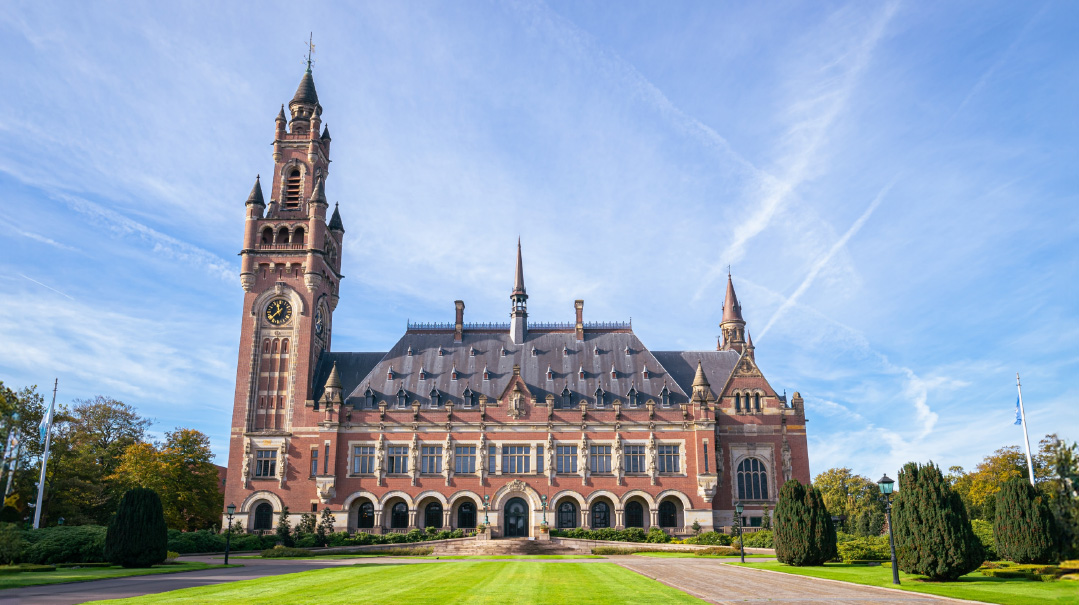As Israelis, Will My American Bochur Be Drafted?

These bochurim fall into a category colloquially known as “bnei mehagrim” (“children of emigrants”) and the issues are complex

The public discourse in Israel is focused on the High Court’s decision to push forward with drafting yeshivah bochurim into the IDF. But while much of the debate centers on how much funding yeshivos will lose and how many bochurim should serve, a little-known provision in Israel’s citizenship laws could affect some yeshivah students who might have assumed the hullaballoo wasn’t relevant to them — certain bochurim coming from chutz l’Aretz.
Say a young couple from the US or the UK moves to Israel after their wedding and officially make aliyah, or register with the government as toshavim keva (“permanent residents”). While in Israel, they have a son. Then the family moves back to the parents’ native country, and they have another son. What happens when these sons get older and want to learn in Israel? Are they subject to Israel’s draft?
These bochurim fall into a category colloquially known as “bnei mehagrim” (literally, “children of emigrants”), and the issues are complex. We spoke with Rabbi Nechemya Malinowitz, director of Eretz HaKodesh, and Rabbi Yoni Katz of the Igud of Yeshivos and Seminaries for Bnei Chul, to find out what parents have to know about their childrens' status.
What Is a “Ben Mehagrim”?
It’s the child of a couple who either hold Israeli citizenship or were registered as toshavim keva. This child either:
- a) was born outside of Israel and never resided there, or
- b) left Israel before the age of 16 with his or her parents.
These individuals are entitled to visit Israel for up to a year, and then, after that period, for up to 120 days in a calendar year (from January to December). But if they remain in Israel after that time elapses, they are automatically subject to Israeli laws, the same as regular citizens.
This has ramifications, especially for military service. Children in this situation need to attain the official status of “bnei mehagrim.” This grants them the ability to stay longer in Israel without being considered Israeli citizens.
Why Is This Important to Know?
Because the bnei mehagrim have not been affected by the changes in the draft laws. While the status of “bachur yeshivah” no longer exempts a young person from being called to military service, the status of bnei mehagrim has not been changed.
The issue is that many of these young men, relying on the exemption previously given to every bachur yeshivah, have never bothered to become classified as bnei mehagrim. They now need to do so — because the exemption they were relying on is going away, and there is another one that can help them. For this reason, it is extremely important that all yeshivah bochurim studying in Israel who can qualify as bnei mehagrim do so, as this is their only option that will provide exemption from the draft.
What if the Parents Never Obtained Israeli Citizenship?
Twenty years ago, a law was passed that changed the status of a child born in Israel. Previously, any child born in Israel was automatically an Israeli citizen.Now, if a young couple from chutz l’Aretz lives in Israel for a few years without ever obtaining citizenship or registering as toshavim keva, then any children born to them in Israel are considered citizens of the parents’ native country, and not citizens of Israel. In other words, children born to American kollel couples who do not make aliyah or become toshavim keva are considered Americans, not Israelis, in the eyes of Israeli law.
How Is the Process Carried Out?
Becoming an official ben mehagrim is a rather straightforward procedure that families must undertake at the local Israeli consulate, wherever they are located in chutz l’Aretz. Once their children have obtained recognition as bnei mehagrim, upon their arrival in Israel, the yeshivos typically know how to navigate the bureaucracy to request the necessary paperwork for their allotted time. If there are any difficulties, the Igud of Yeshivos and Seminaries for Bnei Chul comes in handy.
What Happens If Israeli Parents Don’t Go Through This Process?
A common mistake made by many parents who have lived in Israel (whether as citizens or as toshavim keva, as there’s no distinction for this matter) and then return, is that they believe they can “outsmart the system” by not mentioning that their child is technically of Israeli descent. Consequently, they never go through the process at the Israeli consulate to “declare” their child’s birth.
The problem arises when the young person tries to enter Israel as a “tourist” and later applies to stay in yeshivah with a student visa; the records will reveal their parents’ Israeli status. Thus, their situation worsens: Not only will they be recognized as Israeli, but they will also forfeit the benefits of the ben mehagrim status of staying for a while without being subject to the draft. It is true that someone can retroactively obtain ben mehagrim status, but it is a serious bureaucratic headache.
Draft at the Airport?
Despite what many may fear, there isn’t (at least for now) a possibility of someone arriving at Ben-Gurion Airport and getting drafted into the military for not having the proper paperwork. However, a young person may be informed that he hasn’t clarified his status with the military and must do so promptly.
In such a case, it’s advisable for the young person to contact the Igud for Bnei Chul for assistance with the process. It goes without saying that it’s far preferable to handle all the paperwork at the appropriate time and place: at the consulate, before traveling, when the process for obtaining ben mehagrim status isn’t overly complicated.
Different Types of Bnei Mehagrim
- A young person born to “Israeli parents” (i.e., Israeli citizens or toshavim keva) who never lived in Israel, or left before the age of 10, may apply for ben mehagrim status that grants him a four-year stay in Israel.
- A young person born to “Israeli parents” who left Israel with his parents when he was between the ages of 10 and 16 may claim a ben mehagrim status that allows him to study in Israel for only one year.
What Can Those with Only a One-Year Permit Do?
Young people who departed Israel between the ages of 10 and 16 to reside in chutz l’Aretz are only granted permission to study in Israel for one year as bnei mehagrim. Once this period expires, their only option is to return to their parents’ native country and remain there for 120 days. Only after that can they return to Israel, and only for another 120-day stint.
Total Exemption
In contrast to fully Israeli youths who are exempt from military service at 26, bnei mehagrim are completely exempt at 22, provided they haven’t spent more than 120 days in the country over the past two years.
Crucially, if someone who has finished the four-year program returns home for more than 60 days, then he can’t come back to Israel and rely on getting a bachur yeshivah exemption — not only because that exemption doesn’t exist anymore, but also because bnei mehagrim cannot leave the country for more than 60 days. By doing so and coming back, he will be considered fully Israeli, subject to the same laws as Israeli citizens.
(Originally featured in Mishpacha, Issue 1007)
Oops! We could not locate your form.






